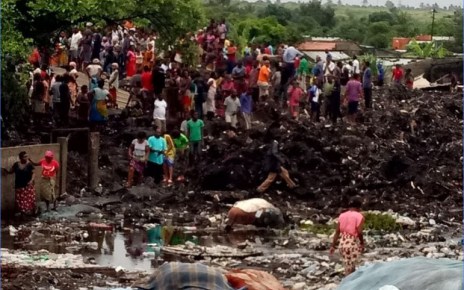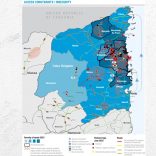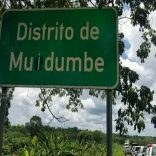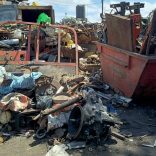Mozambique: At least 26 people murdered by terrorists in June
More on resettlement from Hulene costing 100 million dollars – AIM report

File photo from Feb 19, 2018.
The Mozambican government needs almost 100 million US dollars to resettle about 1,750 households living in the vicinity of the sprawling rubbish dump in the Maputo neighbourhood of Hulene.
Heavy rains caused part of the dump to collapse on 19 February, destroying seven houses and killing 18 people. Survivors and those from nearby houses were moved to an accommodation centre in the Ferroviario neighbourhood.
But the government and Maputo Municipal Council have decided to demolish all houses located in the immediate vicinity of the dump, and ensure that nobody will return to live in such a dangerous place. It wants to resettle the households still living near the dump in Bobole, in Marracuene district, about 30 kilometres north of Maputo.
Speaking to reporters on Tuesday, at the end of the weekly meeting of the Council of Ministers (Cabinet), government spokesperson Ana Comoana, the Deputy Minister of Culture and Tourism, said the resettlement should take place in three phases.
In the first phase, 400 households will be resettled at a cost of 21.1 million dollars. Phase two will see a further 500 households moved to Bobole at a cost of 29 million dollars. This was “a medium term phase”, Comoana said.
The third and final phase will involve about 850 households and will cost around 49 million dollars, giving a grand total for the resettlement of 99 million dollars.
“These sums include the opening of access roads, the building of houses, the installation of social facilities, and also the promotion of income generating projects”, said Comoana.
She stressed that 173 households have already been removed from the shadow of the dump and have been temporarily resettled in accommodation centres. “Right now a further 139 households are being removed”, she added. “This means that, in practice, the plan is already being implemented”.
But the government does not have a spare 99 million dollars, and, asked where the money for resettlement would come from, Comoana replied “we are in the phase of mobilising funds”.
While the money has not arrived, the government will do what it can, she said, such as identifying the number of households directly affected by the disaster, and identifying alternative spaces for definitive resettlement.












Leave a Reply
Be the First to Comment!
You must be logged in to post a comment.
You must be logged in to post a comment.